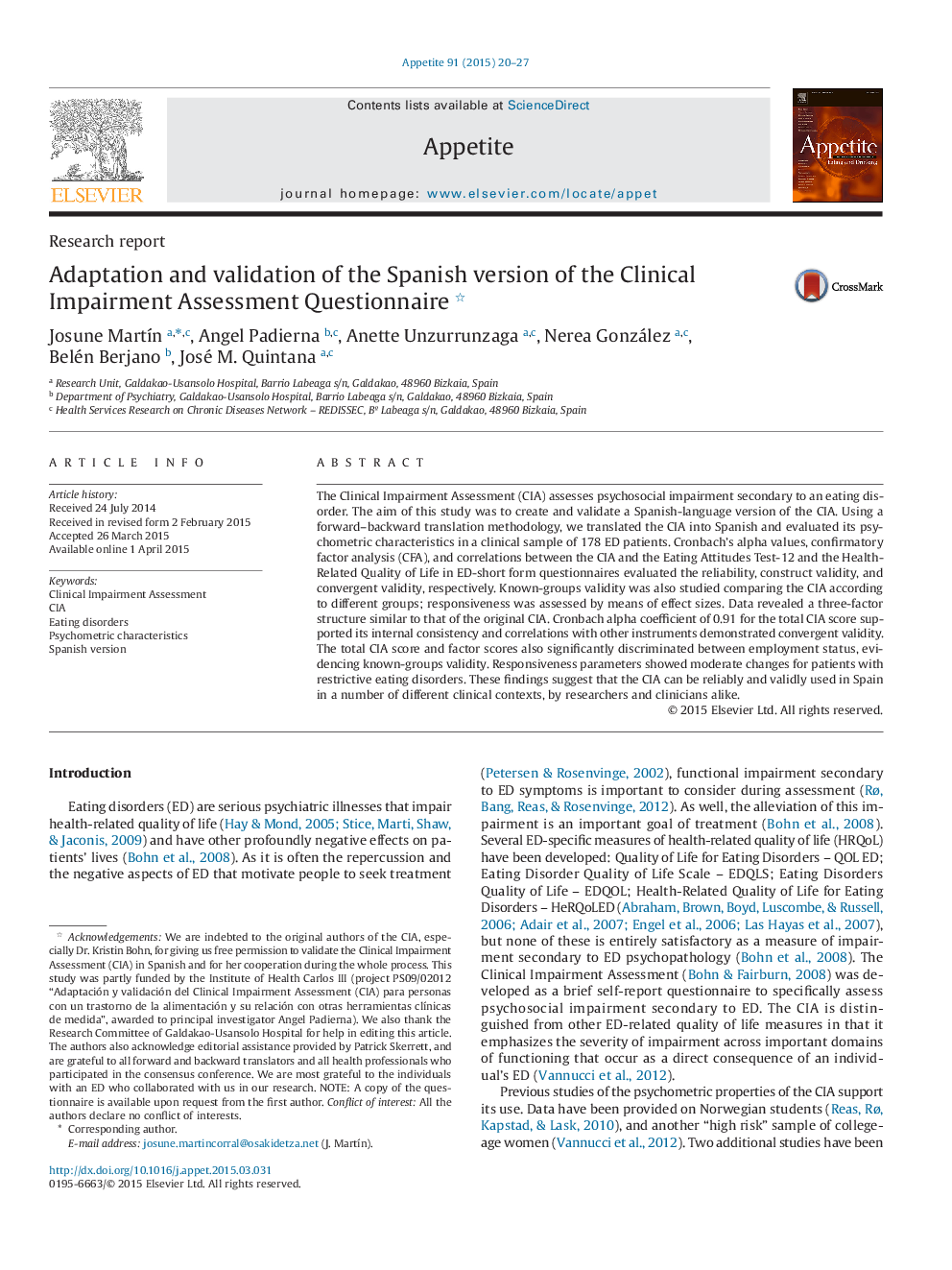| Article ID | Journal | Published Year | Pages | File Type |
|---|---|---|---|---|
| 7308398 | Appetite | 2015 | 8 Pages |
Abstract
The Clinical Impairment Assessment (CIA) assesses psychosocial impairment secondary to an eating disorder. The aim of this study was to create and validate a Spanish-language version of the CIA. Using a forward-backward translation methodology, we translated the CIA into Spanish and evaluated its psychometric characteristics in a clinical sample of 178 ED patients. Cronbach's alpha values, confirmatory factor analysis (CFA), and correlations between the CIA and the Eating Attitudes Test-12 and the Health-Related Quality of Life in ED-short form questionnaires evaluated the reliability, construct validity, and convergent validity, respectively. Known-groups validity was also studied comparing the CIA according to different groups; responsiveness was assessed by means of effect sizes. Data revealed a three-factor structure similar to that of the original CIA. Cronbach alpha coefficient of 0.91 for the total CIA score supported its internal consistency and correlations with other instruments demonstrated convergent validity. The total CIA score and factor scores also significantly discriminated between employment status, evidencing known-groups validity. Responsiveness parameters showed moderate changes for patients with restrictive eating disorders. These findings suggest that the CIA can be reliably and validly used in Spain in a number of different clinical contexts, by researchers and clinicians alike.
Related Topics
Life Sciences
Agricultural and Biological Sciences
Food Science
Authors
Josune MartÃn, Angel Padierna, Anette Unzurrunzaga, Nerea González, Belén Berjano, José M. Quintana,
